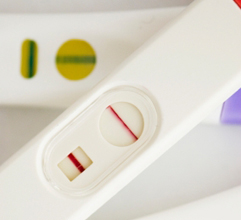Global Scans · Pregnancy · Weekly Summary

- [New] Under Australia's National Immunization Program, the flu vaccine is free for higher-risk groups, including children under five, adults over 65, and pregnant women. The Conversation
- [New] Babies born before full-term, or 37 weeks of pregnancy, are at greater risk for death, health complications and disabilities. ScienceDaily
- [New] Around a third of women who experience a hypertensive pregnancy will go on to start treatment for high blood pressure within 10 years, and they have a significantly higher long-term risk of heart attack, stroke and heart failure. British Heart Foundation
- Heat exposure is associated with a higher risk of pre-term births, stillbirths and hypertension in pregnancy, among other problems. The Economist
- The Australian Government provides free vaccines to eligible people, including young children, older Australians, Aboriginal and Torres Strait Islander people, and others who are at greater risk of serious harm from vaccine-preventable diseases, such as pregnant women. Australian Institute of Health and Welfare
- If greater Port-au-Prince remains at a standstill in the coming weeks, almost 3,000 pregnant women could be denied access to essential health care, and almost 450 could face life-threatening obstetric complications if they do not receive medical assistance. Free Malaysia Today (FMT)
- Benefits of extending the child support grant into pregnancy have the potential to enhance the lives of families and communities as well as individual children and save the South African government billions. The Conversation
- The FDA approved a new RSV vaccine for pregnant people and an antibody treatment for babies that could substantially lower the rates of severe RSV infections among children-big wins against the leading cause of hospitalization in infants in the U.S. and one of the main drivers of child mortality. Johns Hopkins Bloomberg School of Public Health
- 94% of malaria cases and 95% of malaria deaths are found in Africa, with infants, pregnant women, travelers, and people with HIV/AIDS being at higher risk. EMBL
- Researchers have developed a way to use ultrasound to predict whether a pregnant person is at risk of delivering a baby prematurely, which occurs in upward of 10% of pregnancies in the U.S. Medical Xpress
- A JAMA Network study finds COVID-19 mRNA vaccines in pregnant women not only safe but also associated with reduced risks of neonatal cerebral ischaemia, intracranial haemorrhage, and mortality, supporting vaccination during pregnancy. News-Medical
- Supporting women of childbearing age to have a healthy weight could reduce the risk of several pregnancy complications. University of Bristol
- During the field visit, Parliamentarian Paula Oliveira highlighted that access to family planning services can prevent 1300 maternal deaths, 99000 unsafe abortions and 517000 unwanted pregnancies in Angola per year between now and 2030. World Health Organization: WHO
- Nationwide, the Health Ministry has drawn up talking points for doctors to discourage women from terminating their pregnancies, and new regulations soon will make many emergency contraceptives virtually unavailable and drive up the cost of others. ABC News
- Pregnant women exposed to specific classes of flame-retardant chemicals may face an increased risk of preterm birth, especially for baby girls, or higher birth weights. News-Medical
- Texas law allows an abortion only when there is a medical emergency for the pregnant person, defined as a life-threatening physical condition related to the pregnancy that poses a serious risk of substantial impairment of a major bodily function. The Conversation
- Tennessee has an exception that allows abortions necessary to prevent the death of the pregnant woman or to prevent serious risk of substantial and irreversible impairment of a major bodily function of the pregnant woman. The Conversation
- South-east Queensland temperatures are expected to climb to the high 30s to low 40s in the coming days, and residents have been asked to look after vulnerable people including elderly people, young children, and pregnant women. The Guardian
- Young children, pregnant women and breastfeeding mothers are most at risk of malnutrition, but almost everyone in Gaza is now going hungry and facing crisis or worse levels of food insecurity. Islamic Relief
- Nearly 40% of America's infants participate in WIC, which is available only to pregnant women, new mothers, infants, and children who meet income guidelines and are determined to be at nutritional risk by a health professional. National Collaborative on Childhood Obesity Research
- Without the necessary additional funding, millions of eligible pregnant women, new mothers, infants, and young children are at risk of missing out on WIC's critical nutrition assistance at some point in 2025. National Collaborative on Childhood Obesity Research
- While successfully treating the circumstances that can lead to a spontaneous preterm birth can be challenging, there are ways to improve community health in ways which in turn could optimize the health of people as they enter into pregnancy and reduce the risk of medically indicated preterm birth. Medical Xpress
- The impending colder weather is raising alarm over the potential for worsening malnutrition and food shortages, particularly for more than 50,000 pregnant people and about 337,000 children under the age of 5 in Gaza. Truthout
Last updated: 22 April 2024
